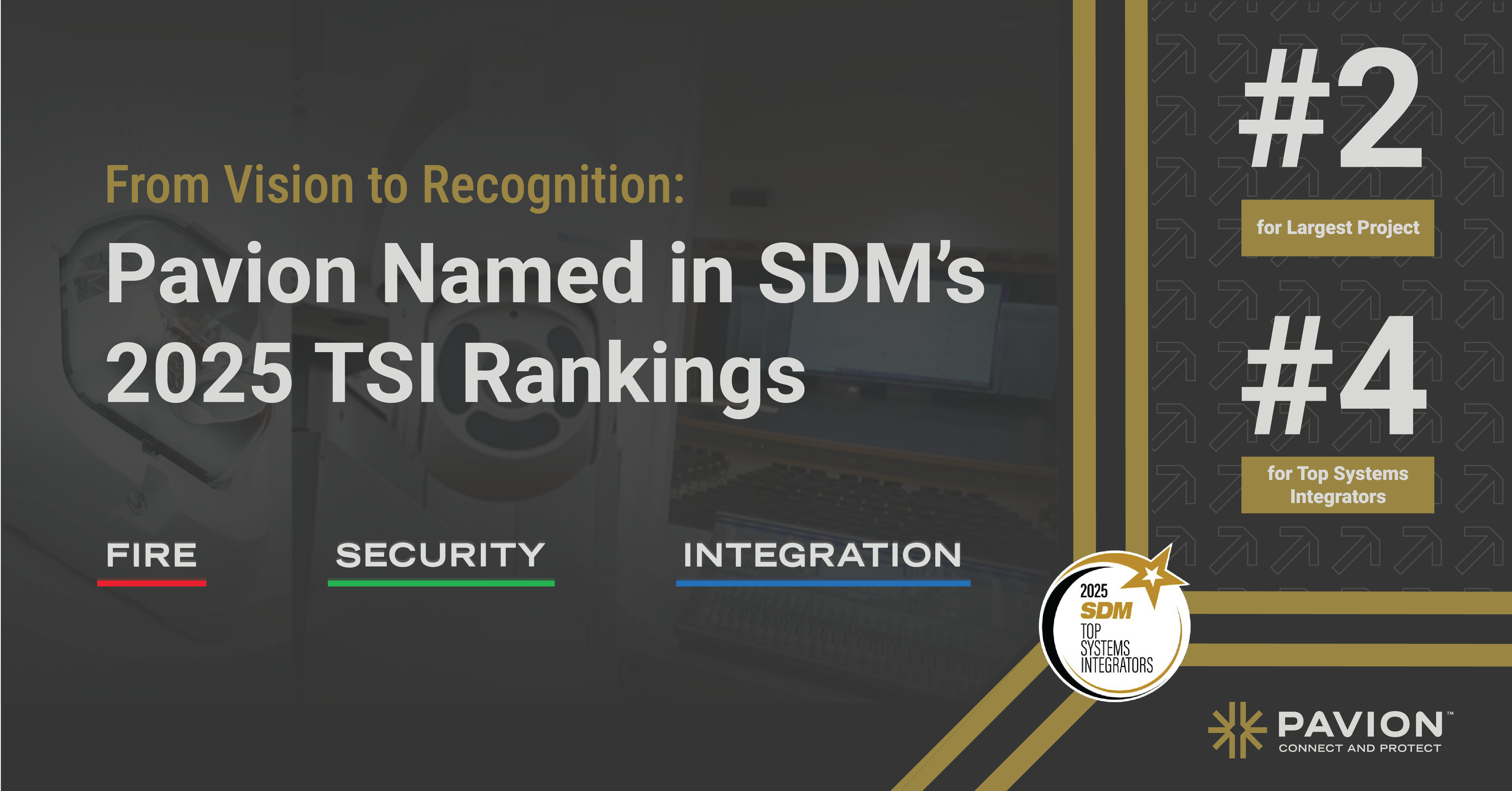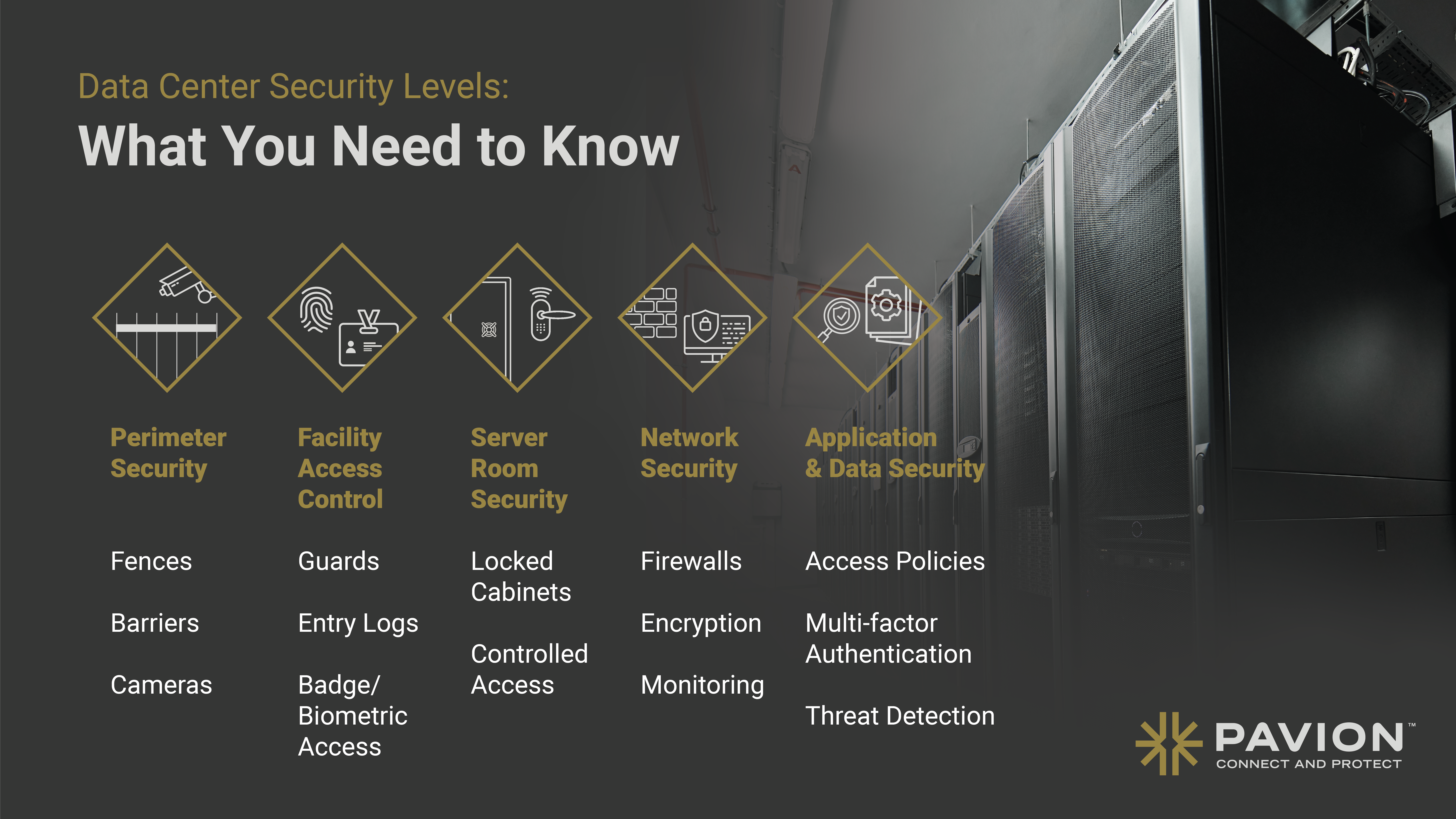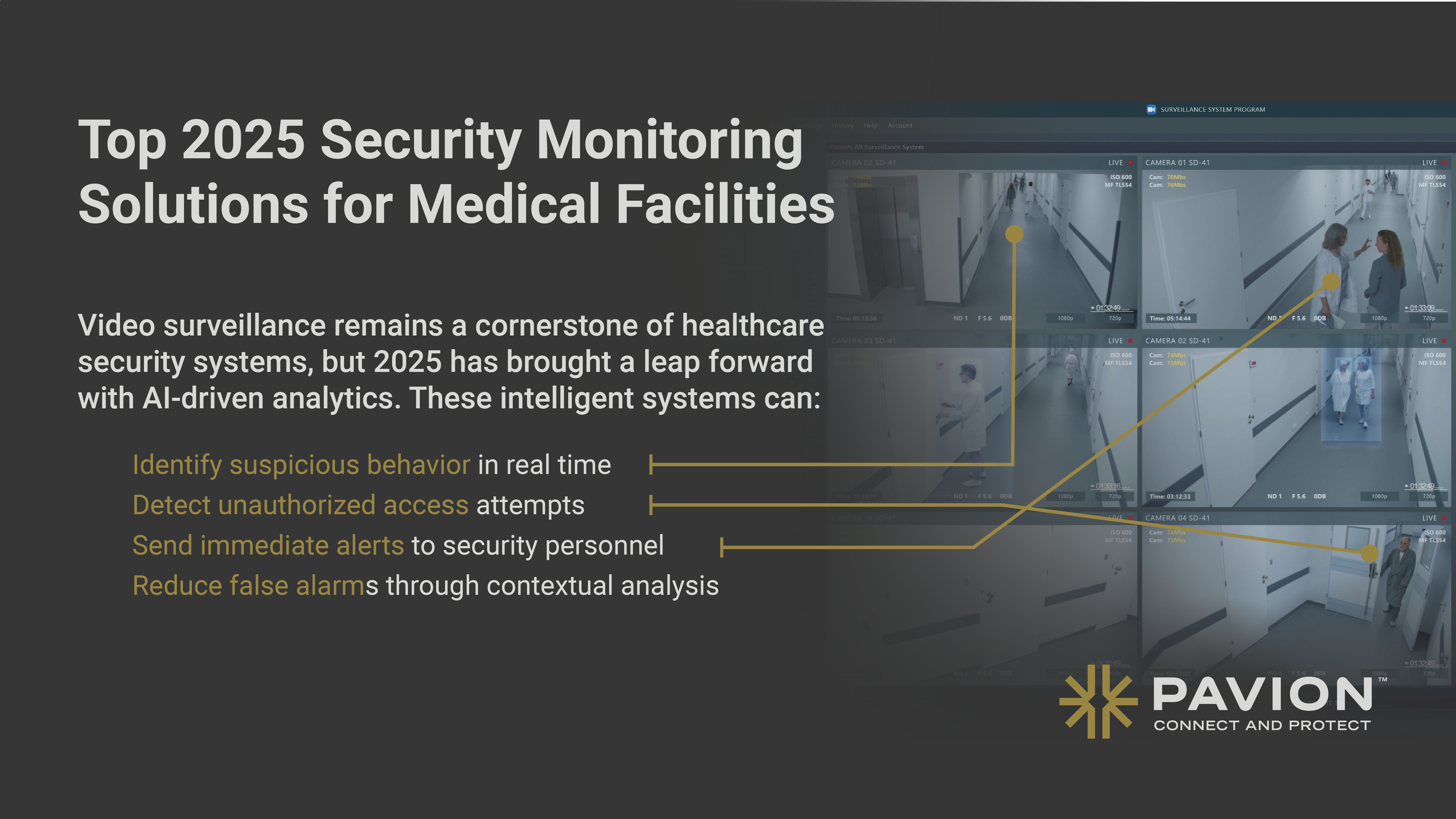
A Guide to Supermarket Security Systems
In today’s world, security is a top concern for businesses, particularly in the retail industry where theft and shrinkage can have a significant impact on profitability. Supermarkets, with their high customer traffic and large inventory, are particularly vulnerable to security risks. Therefore, implementing a comprehensive security strategy is crucial to ensure the safety of employees, customers, and assets. This guide will provide an overview of the importance of supermarket security, the various types of security systems available, strategies for implementation, and the future of supermarket security.
Understanding the Importance of Supermarket Security
Security plays a vital role in the retail industry to safeguard against theft, vandalism, and other criminal activities. For supermarkets, security measures go beyond protecting inventory; they also ensure a safe and pleasant shopping experience for customers.
Supermarkets are bustling hubs of activity, with customers coming and going, employees working diligently, and products lining the shelves. In such a dynamic environment, it becomes crucial to have robust security measures in place to maintain order and prevent any potential disruptions.
The Role of Security in Retail
Security is more than just a precautionary measure; it is an integral part of a supermarket’s operations. It not only deters theft but also minimizes the risk of employee theft, shoplifting, and fraudulent activities. The presence of security personnel, surveillance cameras, and alarm systems acts as a strong deterrent for potential criminals.
Moreover, security measures help create a sense of trust and safety among customers and employees. When shoppers feel secure, they are more likely to spend more time exploring the store, make purchases without hesitation, and return for future visits. This, in turn, positively impacts the supermarket’s revenue and reputation. Employees also have more dedication to an employer who shows that they care about employee’s safety and well-being. This can be achieved through a proper design and implementation for both the interior of the supermarket as well as exterior portions both in the public parking areas as well as behind the store.
Key Risks in Supermarket Security
Supermarkets face a range of security risks, including theft, organized retail crime, product tampering, and violence. Shoplifting, in particular, can result in substantial financial losses, affecting both the supermarket’s bottom line and the prices customers pay for goods.
Organized retail crime, often carried out by professional shoplifting gangs, poses a significant threat to supermarkets. These criminal networks operate with precision, targeting high-value items and causing significant financial damage. By implementing advanced security measures, supermarkets can effectively combat organized retail crime and protect their assets.
Product tampering is another risk that supermarkets must address. Incidents of tampering, such as contaminating food products or altering expiration dates, can have severe consequences for both the supermarket and its customers. Implementing stringent security protocols, such as tamper-evident packaging and regular inspections, helps ensure the integrity and safety of the products on the shelves.
Violence, though relatively rare, can occur in supermarkets, posing a threat to both customers and employees. Disputes between customers, acts of aggression, or even armed robberies can create an atmosphere of fear and unrest. By having trained security personnel on-site and implementing emergency response protocols, supermarkets can minimize the risk of violence and swiftly handle any potential incidents.
To effectively mitigate these risks, supermarkets need to invest in reliable security systems that are tailored to address their specific vulnerabilities. This includes a combination of physical security measures, such as surveillance cameras, access control systems, and security personnel, as well as technological solutions like alarm systems and inventory tracking software.
By prioritizing supermarket security, retailers can create a safe and secure environment for both their customers and employees. This not only protects their assets but also enhances the overall shopping experience, fostering customer loyalty and trust.
Types of Supermarket Security Systems
When it comes to securing a supermarket, there are several types of security systems to consider. Each system serves a specific purpose and can be used individually or in combination to provide comprehensive protection.
Surveillance Camera Systems
Surveillance cameras are an essential component of any supermarket security system. They act as a deterrent, provide real-time monitoring, and record evidence in case of an incident. Modern surveillance systems utilize high-resolution cameras, intelligent analytics, and remote access capabilities to enhance security and detection capabilities. These systems can also use analytics and AI to determine when a known shoplifter is entering the area, when certain products are being moved, when areas of concerned are being entered and much more. They can also provide valuable data through the analytics to HR, marketing and other departments to understand when to run promotions, help with staffing issues, etc.
These surveillance cameras are strategically placed throughout the supermarket to ensure maximum coverage. They can capture high-quality images and videos, even in low-light conditions, thanks to advanced night vision technology. The footage recorded by these cameras can be stored on secure servers for future reference and analysis.
Furthermore, surveillance camera systems can be integrated with facial recognition technology to identify known shoplifters or individuals with a history of suspicious activities. This advanced feature enhances the overall security of the supermarket by alerting security personnel in real-time.
Alarm Systems
Alarm systems are designed to detect unauthorized entry or suspicious activities within the supermarket premises. They work by triggering an audible alarm and alerting the authorities or security personnel. Alarm systems can be integrated with access control systems to restrict entry to authorized personnel only.
These alarm systems utilize a combination of motion sensors, door/window sensors, and glass break detectors to detect any unusual activity. When triggered, the alarm system sends an immediate alert to the central monitoring station, where trained professionals can assess the situation and take appropriate action.
In addition to their primary function of detecting intrusions, alarm systems can also be equipped with smoke detectors and carbon monoxide sensors to ensure the safety of both customers and employees. This comprehensive approach to security minimizes the risk of fire hazards and other emergencies. They can also monitor critical conditions such as freezer and refrigerator temperatures to make sure they don’t go above or below a certain temperature,
Access Control Systems
Access control systems allow supermarkets to manage and regulate entry to restricted areas. By using access cards or biometric authentication, supermarkets can limit access to authorized personnel and keep sensitive areas secure. These systems also enable accurate tracking of employee attendance and generate reports for management review.
With access control systems in place, supermarkets can assign different access levels to employees based on their roles and responsibilities. This ensures that only authorized personnel can enter areas such as cash rooms, stockrooms, and server rooms, minimizing the risk of theft or unauthorized access to sensitive information.
Moreover, access control systems can be integrated with time and attendance management software, making it easier for supermarkets to track employee working hours and calculate payroll. This automated process eliminates the need for manual record-keeping and reduces the chances of errors or discrepancies.
Additionally, access control systems can be equipped with features such as visitor management, where temporary access cards or badges can be issued to vendors, contractors, or other visitors. This allows supermarkets to maintain a secure environment while accommodating external personnel.
By combining surveillance camera systems, alarm systems, and access control systems, supermarkets can create a robust security infrastructure that safeguards their premises, assets, and personnel. These systems work together seamlessly to provide comprehensive protection against theft, vandalism, and other security threats.
Implementing a Comprehensive Security Strategy
Developing a comprehensive security strategy requires considering the unique needs and challenges of your supermarket. Here are the key steps to follow:
Assessing Your Supermarket’s Security Needs
Start by conducting a thorough assessment of your supermarket’s security vulnerabilities. Identify areas of high risk, such as entrances, exits, and areas with valuable merchandise. Assess the existing security measures and determine if they are adequate or require improvement.
Choosing the Right Security Systems and the right integration partner
Based on your assessment, select the appropriate security systems that address your specific needs. Assess factors such as camera coverage, alarm system sensitivity, and access control requirements to ensure effective protection. Consult with security experts or vendors who specialize in supermarket security to make informed decisions. It is important to work with someone who has experience in your industry and who can understand many of the challenges that you face daily.
Integrating Multiple Security Systems
A comprehensive security strategy involves integrating multiple systems to maximize effectiveness. For example, integrating surveillance cameras with alarm systems and access control systems creates a cohesive security infrastructure. This integration allows for seamless monitoring, centralized control, and instant response to security events.
Maintenance and Upgrades for Security Systems
Securing a supermarket is an ongoing process that requires regular maintenance and periodic upgrades. Neglecting maintenance can result in system failures or vulnerabilities that can be exploited by criminals. Consider the following:
Regular System Checks and Maintenance
Regularly inspect and maintain your security systems to ensure they are in proper working order. This includes cleaning and testing cameras, checking alarm system functionality, and updating access control credentials. Conduct routine inspections, and address any issues promptly to maintain optimal security levels.
When and Why to Upgrade Your Security System
Technology is constantly evolving, and so are the methods employed by criminals. Therefore, it is essential to stay up to date with the latest security advancements. Keep an eye on emerging trends, such as enhanced video analytics or biometric authentication, and assess whether upgrading your existing system would provide additional protection or operational benefits.
The Future of Supermarket Security
As technology continues to advance, so do the possibilities for enhancing supermarket security. Here are the key areas to watch:
Technological Advances in Security Systems
Advancements in surveillance camera technology, smart sensors, and video analytics are revolutionizing how supermarkets approach security. Video analytics can now detect suspicious behavior, track customer movements, and provide valuable insights to optimize store layouts and staffing. Supermarkets can leverage these technologies to improve security, operational efficiency, and customer experience.
The Impact of AI and Machine Learning on Security
Artificial intelligence (AI) and machine learning are increasingly being integrated into security systems. AI algorithms can analyze vast amounts of data to detect patterns, automatically alert security personnel to potential threats, and even autonomously respond to certain security events. Integrating AI with existing security systems can significantly enhance the efficacy of supermarket security measures.
In conclusion, supermarket security systems are critical for protecting both the financial well-being of supermarkets and the safety of their customers and staff. By understanding the importance of security, exploring the various types of security systems available, implementing a comprehensive security strategy, and staying abreast of technological advancements, supermarkets can ensure a safe shopping experience and mitigate potential risks.
Secure Your Supermarket with Pavion
As you consider the vital role of security in your supermarket’s success, remember that Pavion is here to help you navigate the complexities of modern security systems. With our deep industry experience and commitment to technological innovation, we offer tailored solutions that connect and protect. Whether you operate in the retail sector or any of our other specialized industries, we’re ready to transform your security strategy. Take the first step towards a safer, more secure future with a Free System Assessment from Pavion, and experience the peace of mind that comes with expert guidance and radical service.


